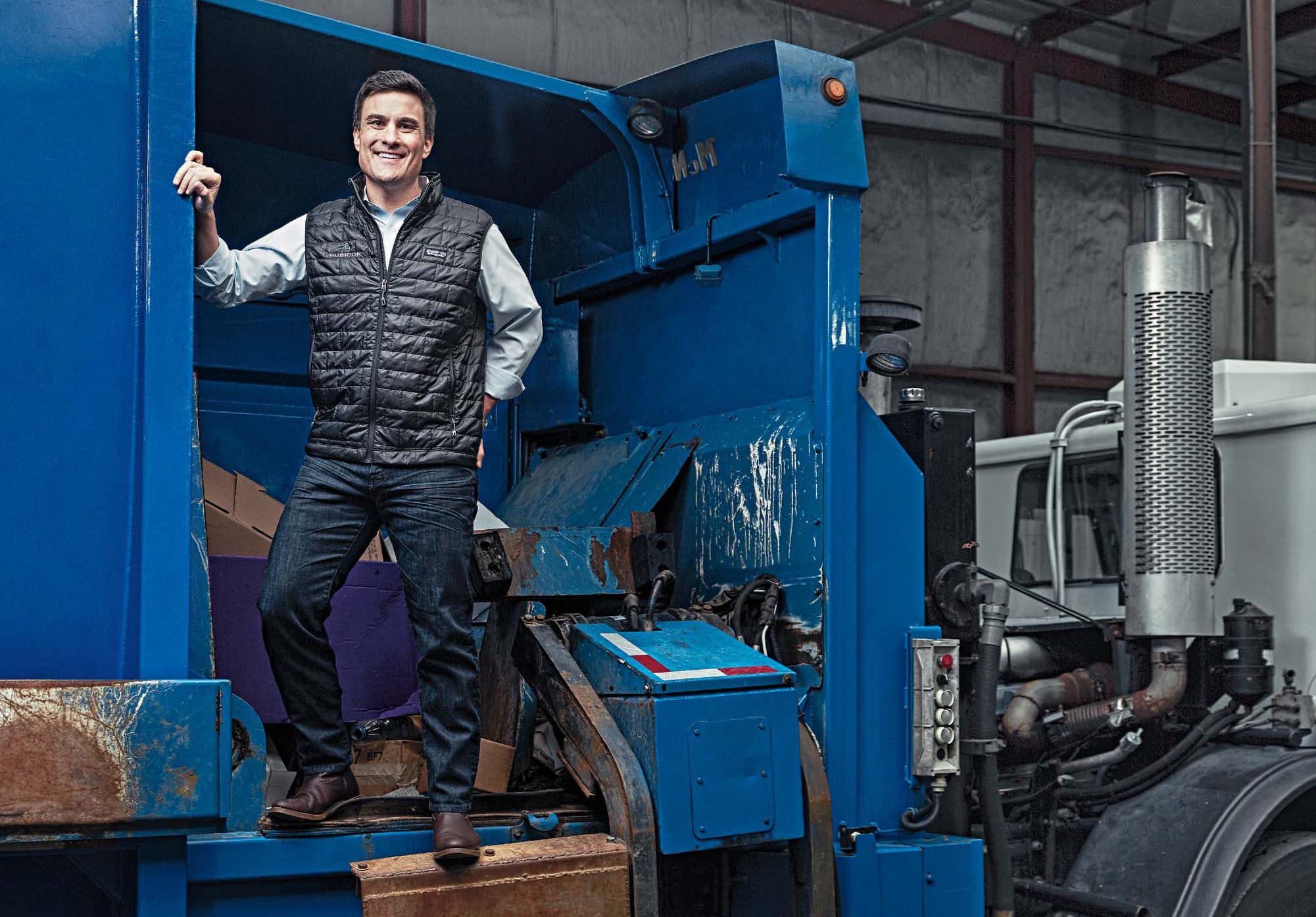Rubicon Global CEO Nate Morris is building the Uber of garbage collection, disrupting a $60 billion industry dominated by giants.

Like other entrepreneurs who head blockbuster tech startups, Nate Morris these days finds his social calendar sprinkled with glitz and glamour: invitations from Leonardo DiCaprio to a premiere of The Revenant (he declined) and from billionaire Marc Benioff to a private dinner with Arianna Huffing ton and Billie Jean King (he accepted). But much of his business at Rubicon Global is a world away from Hollywood and Silicon Valley, in places like Jeffersonville, Indiana, a town of 45,000. On an unseasonably warm November day, he’s there meeting with local garbage boss Bob Lee, who has a plea for Morris: “We need your help.”
Lee has been in the garbage business since he snagged a gig hauling trash for the local unemployment office as a young Army vet in 1971, and his company, Eco Tech Waste Logistics, based in Louisville, Kentucky, is the kind of mom-and-pop operation that has powered Rubicon’s ascent. With 96 employees and 69 haulers (trucks), Eco Tech is one of the area’s leaders. But like almost every other small hauler in the country, it faces a daily challenge from national players with resources that dwarf its own, and Rubicon’s tech offers a way to fight back.
Rubicon is the Uber of trash. Its software connects waste collectors (the guys with the trucks) with the waste creators (an office or business or perhaps even homes), then makes sure the pickup runs smoothly. For the haulers, Rubicon’s app helps detect when the collection happens without any input from or distractions for the driver. The dispatchers know where their trucks are and who’s working the most stops. The consumer gets a big-picture view that shows how much waste they’re sending to landfills versus recycling and how frequently they really need service, helping to cut costs. Rubicon charges both sides—the haulers and their customers—for access to its tech.
This story is from the January 2017 edition of Forbes.
Start your 7-day Magzter GOLD free trial to access thousands of curated premium stories, and 8,500+ magazines and newspapers.
Already a subscriber ? Sign In
This story is from the January 2017 edition of Forbes.
Start your 7-day Magzter GOLD free trial to access thousands of curated premium stories, and 8,500+ magazines and newspapers.
Already a subscriber? Sign In